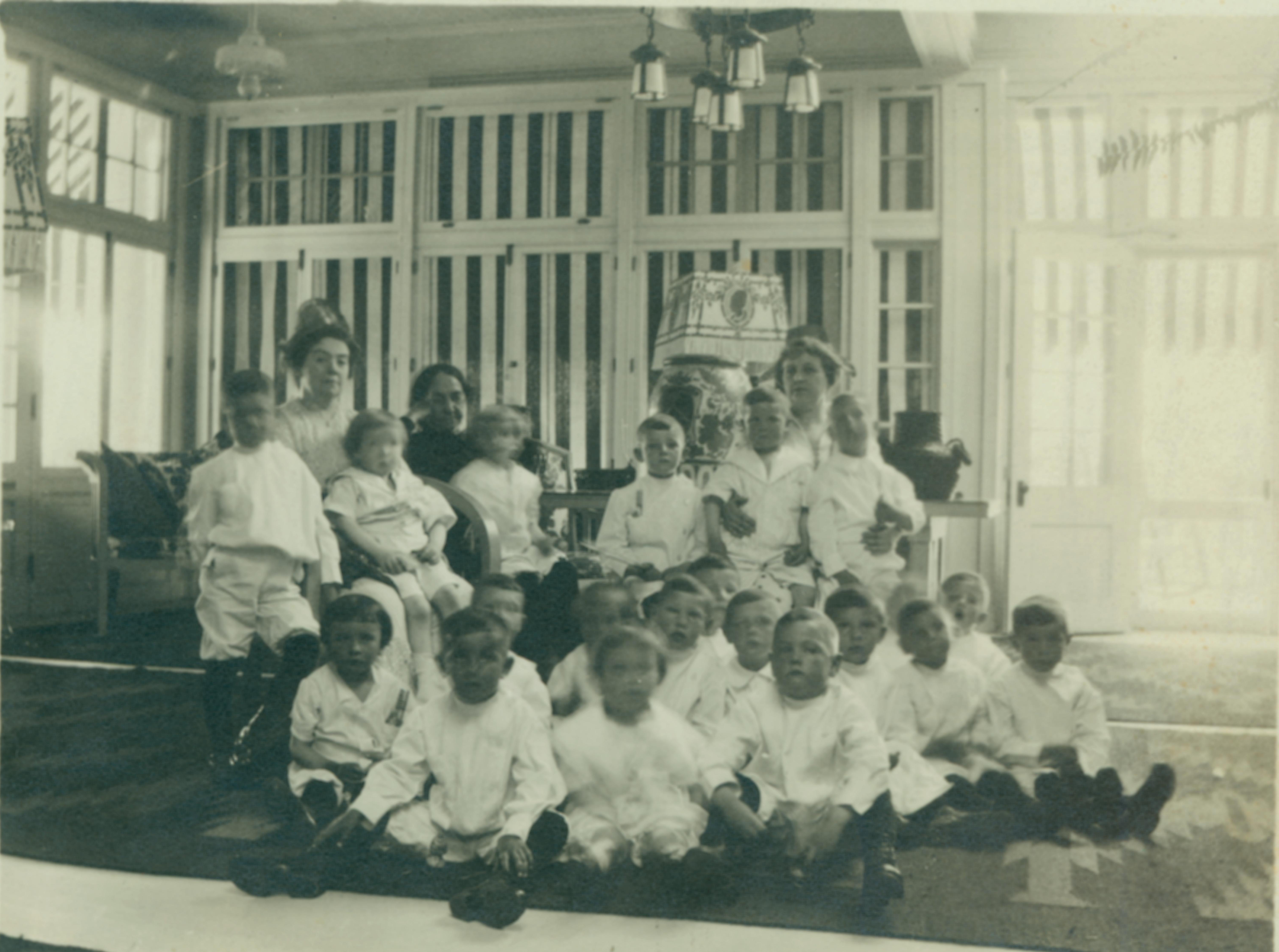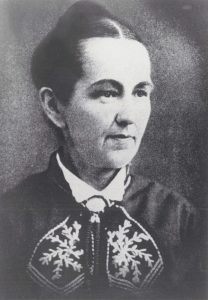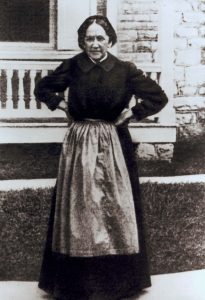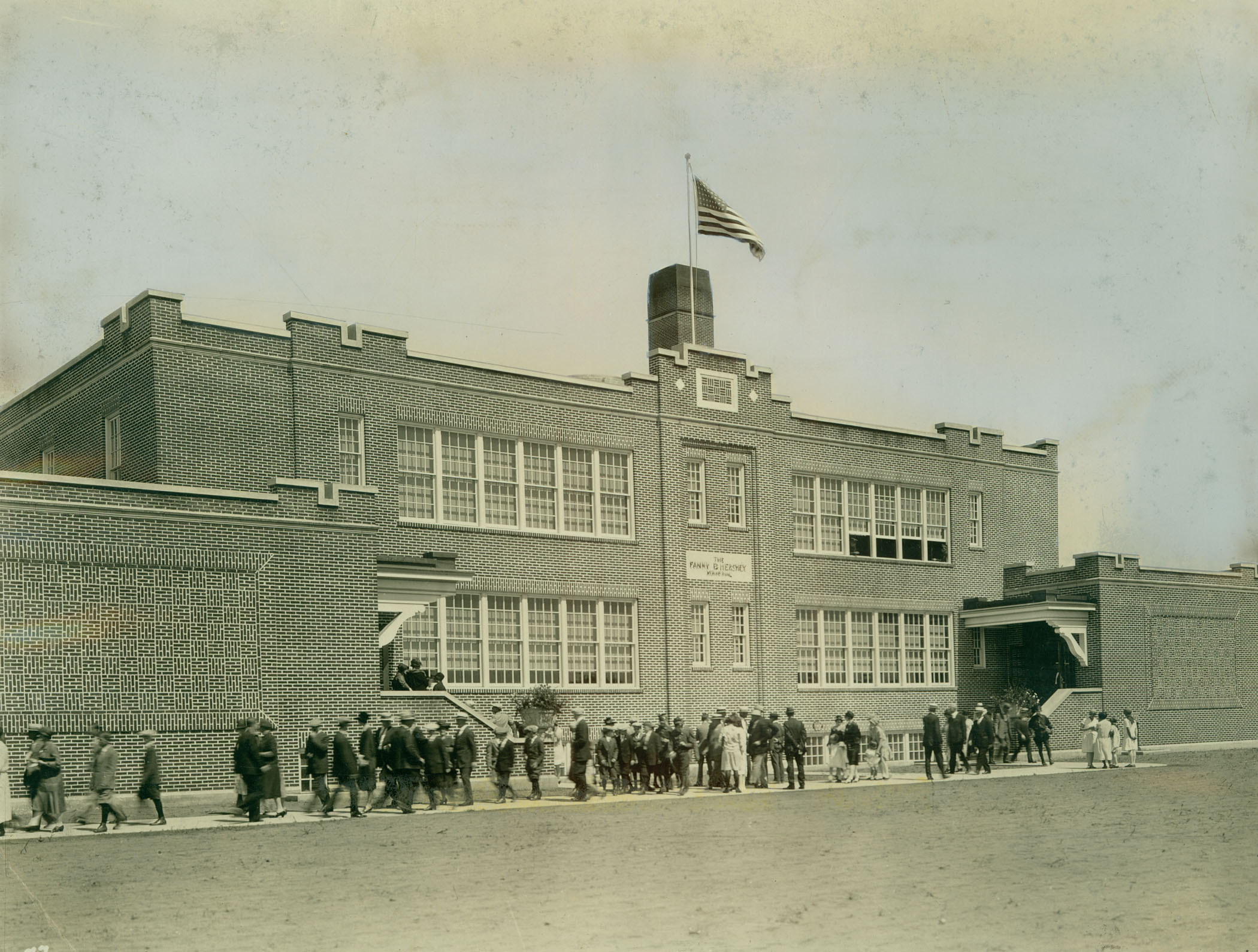Veronica “Fanny” Snavely Hershey: Milton’s Strongest Influence
“When my wife died—and we had no children—my old mother, who had been my abiding guide, said: ‘Milton, don’t let your millions spoil you,’ and right then I decided not to give my millions a chance to spoil me, by simply giving them away.” –Success Magazine, October 1927
Veronica Snavely Hershey grew up in a well-to-do farm family in Lancaster County. Named after her great grandmother, Fanny, as she was known, was educated in a ladies’ finishing school. After her marriage to Henry Hershey, Fanny helped the family budget by making corn brooms, raising chickens, and churning butter. The death of her four-year-old daughter Sarena on March 31, 1867 when Milton was not yet ten years old seemed to break Fanny’s spirit. She then concentrated her devotion on her only child, Milton, and was a major influence on the course of his life.
Learn more about Milton’s mother, Fanny Hershey.
1. She was Milton’s biggest supporter.
After an unsuccessful apprenticeship for a printer, Milton worked as an apprentice in Joseph Royer’s confectionary and candy store. When Fanny learned he was doing menial jobs like sweeping the floors and turning ice cream, she went to Royer and they came to an agreement. “I will pay you extra,” she said, “if you will have someone else turn the ice cream. My boy wants to make candy.”
It may have been this action by Fanny that led Milton to courageously start his own business in Philadelphia at the age of 18. He arrived in the big city with $150 borrowed from his Aunt Martha Snavely (Aunt Mattie).
For years, Fanny and Aunt Mattie were Milton’s principal guardians and champions. They wrapped candy in his Philadelphia and New York shops and worked day and night for his first successful business, the Lancaster Caramel Company in Lancaster.
2. She gave valuable advice that guided Milton throughout life.
As Milton started his businesses, his mother’s words guided him as he made decisions and faced challenges.
“When I left home my mother had given me some advice I never forgot. ‘Milton,’ she said, ‘now that you’re going out in the world alone, my best advice to you is: when you tackle a job, stick to it until you have won the battle.’ I remember these words, first when I got discouraged in the printing office, and later when I got discouraged at my first business venture.”
3. She believed in simplicity and strong work ethic.
After Milton achieved success, Fanny remembered the lean years and found it difficult to change her frugal ways. An oral history in the MHS Archives from a man who delivered her groceries remembered her as one of the finest ladies he ever knew. She would wrap pounds of Hershey’s Kisses every day, reflecting her commitment to a strong work ethic and being useful.
4. She was thoughtful of others.
On Sunday mornings, Fanny would walk down the street past the factory and try the doorknobs to make sure the factory was locked correctly. And although she loved flowers, her conscience told her they were frivolous—yet she frequently cut flowers to take to the neighbor children. In the fall, she also collected apples from the ground and gave them to the farm hands to take home.
After the start of the Hershey Industrial School, Fanny walked from her house on Chocolate Avenue to the Homestead with a basket of broken chocolate bars on her arm – a present for the boys. They and their teachers remember Mother Hershey as “a dear old lady.”
5. She was devoted to the school.
Fanny died in her son’s arms on March 11, 1920. Her obituary in the Harrisburg Telegraph remembered her as never losing “the simple ways and the democratic spirit she inherited from her sturdy Pennsylvania Dutch ancestry” and that she was “always solicitous for the welfare of those around her, and devoted to the little boys who are the wards of her famous son.”
Milton Hershey honored his mother with the building of Fanny B. Hershey Memorial School in 1927. In an interview in Liberty Magazine, he said “My mother was a sturdy, steady woman of strong convictions and clear insight.”
Fanny’s belief in him and her advice to persevere until the battle is won helped mold Milton into the man we treasure and remember.





